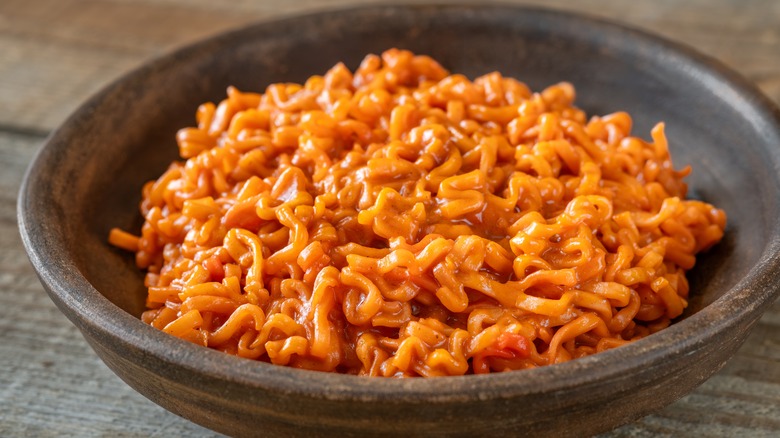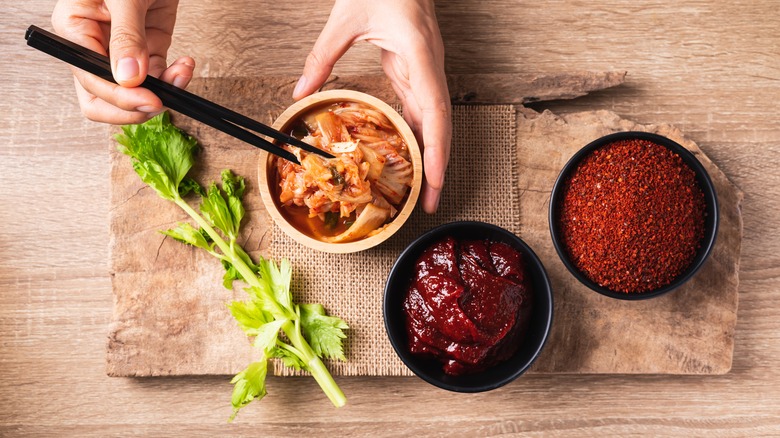Spice Up Bland Buttered Noodles With A Dollop Of Korean Gochujang
Buttered noodles, while simple, reliable, and comforting, can sometimes leave you craving a little more excitement. Luckily, its bland taste also makes the perfect canvas for endless strokes of creativity and experimentation. Almost anything can be used to dress up this dish, from staples like fish sauce to less conventional things such as saffron or za'atar. Well, here's one more condiment to add to the list if you like a little heat in your food: gochujang.
This well-known Korean chili paste has gained immense popularity over the last few years, mainly due to its unique mixture of spicy, umami, piquant, and subtly sweet flavors. That intensity cuts right through the butter's soft, creamy taste. The juxtaposition treats the taste buds to contrasting flavors that somehow still harmonize perfectly with one another. Plus, with a naturally thick consistency, the paste also helps to enrich the dish's texture, coating each strand of noodle in a velvety smoothness. A dollop is all it takes to infuse your buttered noodles with this paste's eccentricity and instantly transform them into something much more complex and intriguing.
There's more than one way to add gochujang to buttered noodles
The addition of gochujang to buttered noodles is pretty straightforward and seamless. Simply stir the paste into the melted butter until these ingredients are well combined and meshed into a vibrant red sauce. But that's not all! With how unbelievably versatile gochujang is, there's a world of possibilities for ingredient combinations that will make buttered noodles a lot more enticing and enjoyable.
For instance, something as simple as peanut butter would make a great company for gochujang and butter. It adds a nutty undertone that just enriches the dish's overall flavors. While you're at it, also throw in other condiments like soy sauce, hoisin sauce, rice wine vinegar, and sesame oil for a full-on Asian twist. Another interesting combo to make would be with heavy cream, which results in a lusciously tangy and spicy sauce. Add some veggies and proteins like shrimp, bacon, or chicken and you've got a deliciously indulgent main course for dinner.
If you're aiming for something that's more true to Korean cuisine, kimchi is the ideal pick. Its natural heat ties right into gochujang's spicy and sour taste while the buttery notes unfold subtly in the back. A sprinkle or two of gochugaru (Korean chili flakes) would also be wonderful if you prefer a smokey-sweet kind of heat.

